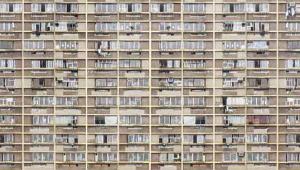
Proposals for a new building safety levy have been shared by the Department for Levelling Up, Housing & Communities.
Broadly, CIPFA supports the proposal to implement a levy to ensure that the cost of safety remediation works is borne by those accountable rather than residents or taxpayers. However, at present, the consultation does not include sufficient detail regarding several key areas.
There is a risk of the scheme negatively affecting local authorities, particularly in their proposed roles as potential collection agencies for the levy and as building control enforcers.
CIPFA’s response is therefore set out to address the following:
1. Financial burden
There are likely to be financial administration and reporting arrangements relating to the levy.
Local authorities are likely to be best placed to act as the collection agency for the levy. They have an existing role in the building control process and established mechanisms for collecting levies as a government agent. CIPFA would suggest, however, that this is subject to ensuring the resource burden is fully addressed, with detailed discussions with the sector.
Local authorities would need to be fully compensated for collection costs. We support the principle that these costs are covered by local authorities retaining a proportion of levy receipts. However, CIPFA recognises that the cost will vary between local authorities. The government would need to ensure any decision on burdens is supported by evidence and in consultation with the sector.
2. Further investigation
CIPFA would be happy to support further investigation into potential methods of compensating the administration costs and would encourage DLUHC to work with the sector to test any assumptions.
3. Frequency
The frequency of returns to central government should be carefully considered, minimising any additional burden to local authorities and ensuring the additional requirements are proportionate. Unlike other larger collections (such as non-domestic rates), quarterly revenue returns would appear to be an appropriate frequency to ensure that the cash flows swiftly to central government. CIPFA is of the view that the revenue returns should on a cash-collected basis. This would ensure that local authorities do not bear the burden of any non-payment.
4. Clear and transparent
The requirements for ‘agreed management information’ should be clear and transparent.
5. Authorised inspectors
The consultation proposes that enforcement of the levy is through building control. CIPFA thinks that where an authorised inspector is used by the developer instead of the local authority, there may be unintended consequences that should be addressed within the final legislative arrangements.
6. Adequate notification
CIPFA is concerned that in such instances, local authorities may not receive adequate notification that a levy is due for collection.
7. Duty of enforcement
CIPFA considers it essential that mechanisms are in place to ensure authorised inspectors have a duty of enforcement placed upon them.
It notes that the proposed sanctions are centred around the halting of building development progression and, ultimately, the sign-off of a completion certificate. There does not appear to be an enforceable sanction option that the local authority can initiate should a completion certificate be obtained from an authorised inspector without full payment of the levy.
We welcome the opportunity to work with DLUHC and the sector to find a viable solution to these issues to prevent any unintended consequences.




















